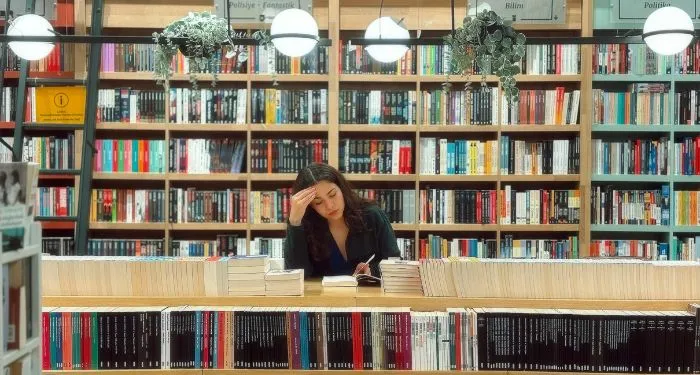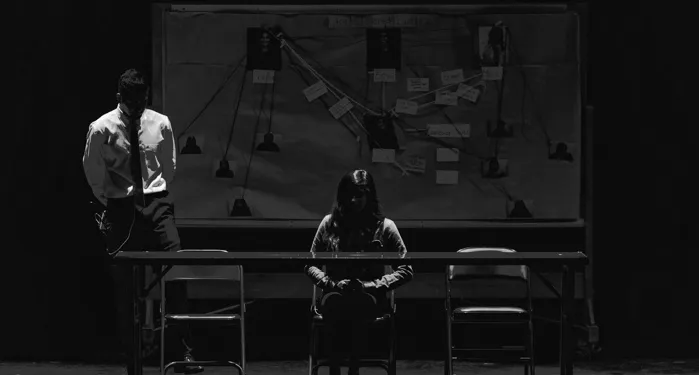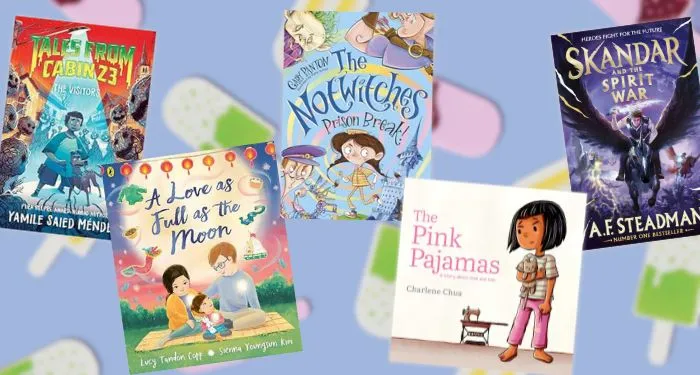In the final conversation of this series, we’ll confront a subject that the literary world likes to keep subtextual: money. The translators and publishers, who usually meet over contract negotiations, open up the books and compare bottom lines, and eventually get to a rare frank discussion about who, on both sides of the ledger, feels like they’re being short-changed, and why. Is there—or could there be—a pay structure that works for everyone? And how should the translator be compensated when their contribution to the process of publishing a book is still so unresolved?
Merve Emre: Adam, let me start by asking you: What do you buy when you buy a translation?
Adam Levy: It’s a good question. I think it’s worth taking an initial step back to answer: What does one buy when one buys a book? At the most basic level, when you’re entering into an agreement to acquire a book, you are acquiring the right to publish a work in a given territory for a period of time, and that period of time is crucial. Often with English-language works, you’re acquiring a book for the duration of copyright. With a translation, you’re usually buying it for a term of contract, and that term of contract varies. It can be anywhere from seven to fifteen years, say, depending on the agreement you’re able to reach with a translator.
One of the unspoken risks of publishing in translation is that you’re often acquiring the right to publish a book for a much shorter period of time than if you were publishing just an English-language original. In our case, I think the ethical thing to do is to pay for an advance against royalties. When you’re talking about buying an English-language work for an English-language territory, and thinking about what you’re going to pay for it, considerations are largely where the commercial and aesthetic intersect. You don’t pay more money for a book that’s four hundred pages than you do for a book that’s one hundred pages. You’re making a decision about the book’s potential to sell in the marketplace based on your own costs for producing it and the returns that you expect to receive for the production and publication of that book. With translation, it’s different—and this conversation tends to get a little thornier. It’s not just the aesthetic consideration of how commercially viable you think this book is in the marketplace. You’re paying for the labor of the translation. There is an implicit acknowledgment that there is labor involved, you’re not just at the end stage of an aesthetic work.
Emre: How do you think about valuing the labor of the translators that you pay?
Levy: We find ourselves the inheritors of a legacy that has historically paid translators a given rate per word, and we treat that total as an advance against the royalties.
Emre: How do you calculate the rate per word?
Levy: For us, originally, we were pegging our starting rate to the American Translators Association’s observed rate, which was £95 per 1,000 words, and whatever that converted to on the dollar scale. We have improved upon that since, but usually we adhere to that as a matter of standard practice. When a publishing house is thinking about that rate, they are including the cost of the translation in the whole calculation of the cost of producing and publishing the book. It’s in the whole scheme of the advance that you’re paying for the underlying rights: the advance that you’re paying for the translators, the costs to design a cover, the cost to typeset a book, the cost to print a book.
If a book retails for $17.95, and an average discount is 50 percent, you’re receiving 50 percent on that. And if an average cut for a distributor is, say, 25 percent, you’re taking 25 percent off of that. And if you’re paying 7.5 percent royalties on the list price, that’s roughly 15 percent of the net that you receive. If you’re paying a royalty to a translator, assuming that the royalty is earned out, it’s say 3 percent, 5 percent, or 1 percent, whatever it might be, and you then subtract that as well. I’m not keeping up with this math, but at a certain point, a publisher gets a little cut, and that little cut is the amount of money you lose per book. It’s how that industry joke came about: the way that you make a small fortune in publishing is to start out with a large one.
Emre: Ginny, you work in a different kind of field, which is the translation of film scripts and subtitles. I’m curious what the economics of that look like.
Jewiss: There aren’t the same standards, or even the same conversations compared to the book world. In Europe, if the film is written in French, all of the production companies have translators who translate those works into English before the film is made. Those screenplays in English are circulated and are used to secure funding from international co-production companies. They are used by location scouts. When you’re targeting a certain talent or actor you want to get, they are used for casting, and if you can get your main major talent on board, that becomes leverage to get international co-production money. So the existence of the film rests on the quality of the translation of that circulated screenplay. That is one layer of the work that I do.
A second layer is when I work with directors who want to film in English but do not speak English. They produce an original screenplay in Italian, they bring that to me, and I do what I call the work of “adaptation,” because there is so much movement that happens in the translation. For instance, cultural shifting: If a film is going to be set in certain places in the United States, I often weigh in on what kind of car or pickup truck that character should be driving, what they might be eating and at what time. I will get a screenplay with notes that say this character is British English, of this class, this education, and this age. None of that register is in the original Italian. That’s something I have to add.
If we return to the conversation this morning about the instability of the text, screenplays are always evolving as directors rewrite, make casting decisions, and choose locations. Sometimes I’ve had to move a film from British English to Irish English, which means changing lexical choices. What I produce then is called a “screen-ready script.” What the director is holding on the set is my translation, which becomes the original from which the film is made. That’s pre-production and production in the film world.
There’s another layer of translation that comes in post-production, which is subtitling. A subtitler must take the dialogue and make incredibly difficult decisions about distilling a conversation down, because the eye moves slower than the ear. What can be written out is always less than what can be said. In addition, you have to be aware of how to keep the eye moving as quickly as possible. The rules of subtitling are things like “Never use punctuation in the middle of a line”—that slows your eye down—and “Do not use question marks,” because we hang our eye there for a minute. Here’s another difficulty. As subtitlers you want to convey as much information as possible without distracting the eye from watching the actors, the set, the beauty of what’s going on. On a close-up, the traditional rule is “only one line of text.” We also have to be aware of words that are difficult to read, because that will also trip up the reader.
So film translation is an entirely different process, and is almost always done under rigid time constraints. When I first started working in film, I had zero idea how to price this, and I started with something that was based on a word count. Over the years, it’s reminded me of what you were just saying, Adam, about a book, as opposed to a translation, that you’re buying. What I’ve established with the production companies I work with is that a screenplay is a set amount, because the buy-in for me to be invested in that project goes beyond a word count.
Emre: Jeremy, Tiffany, Daisy, and Maureen—how do you think about the value of your labor, both in terms of the money that you are getting paid and other kinds of symbolic forms of recognition? For instance, the conversation we had yesterday about a translator’s name on the cover.
Jeremy Tiang: We are at an inflection point in the way translators are viewed less as technical experts and more as artists. But we’re caught in the middle. On one hand, we are often paid by the word, which feels a bit like being paid by the pound. So many words, so many dollars. You’re being treated as a hired hand who comes in and does a certain job for a certain amount. But you’re also being treated as a collaborator who is expected to understand and work for less money. It’s unclear, sometimes, how we are positioned. Are we collaborators? Are we work-for-hire? Are we artists? Are we on the production side or the creative side? This ambiguity—which can be interesting as an artist, to be someone in the shadows—does make it difficult when it comes time to talk about money.
Tsao: There is a sense that we do what we do because we love it. And I think whenever that enters into the equation, the publishers says: “We can only afford to pay you this much, but you love it and you’re really good at it, so you’ll do it, right?” There is a pressure. I recently took a job for an Indonesian publisher, and I did really want to do the project. They paid me the same rate an Indonesian translator would get for translating from English into Indonesian. I accepted the fee because I thought to myself, “How can I ask for more than other people who are doing this work in Indonesia?” It felt icky to demand more as an outsider and say, “Oh, I have higher living costs because I live abroad, so I want more money for it.” Another thing I have been more conscious about is whether my fee eats into the author’s fee. If there’s a set amount of pie and my piece increases, does their piece decrease? In some cases, no. In some cases, it was implied it would. That also affects me, because I think about my responsibility as a translator. It gets into the convoluted question about where you sit as a translator in relation to your writer.
Freely: As a translator, you are in touch with all of the important nodes of the process. You’re in touch with the author. You’re in touch often with the Turkish publisher, in my case. You’re in touch with the organizations that comprise the translation networks in the UK and the US, in Australia and New Zealand. And then you are also involved in taking the book in its literary context from its country and taking it elsewhere. We might be paid by the word, but when you pay us by the word, this is what we’re offering you. We’re offering to be involved with the publishing project from the very beginning to however long it goes on. So not just doing the draft we sent to the publisher but being there for whatever happens afterward. That’s some publicity.
My first experience was helping the publisher through an international storm of hate-campaigning against my author. That was going on in his country but also all over the world. I was also a journalist at that time, so everybody could find me, even when the author was in hiding. That was a time when the publisher was trying to help the author, and I had to explain the Turkish context almost every day when things were very bad. I consider that part of what I was there for. I was there for the whole ride. All I ask for is that I be paid a sum that shows respect for the work that we do.
Rockwell: One thing I haven’t been hearing here is that literary translators represent a really wide continuum of pay scales and amount of work that they get. For example, there are people who completely support themselves on translation, and they’re not rich, certainly, but they are able to make ends meet. They are working in languages that have a high demand in the English-language market. If you are somebody that’s somehow keyed into a system where the publishers are looking for translators for texts they’ve acquired rights to, then you also have work coming to you. But for probably most of us here, that’s not the case.
I’ve only published one book outside of India, one translation. In the Indian market, there is no pay per word. The best-case scenario is that you get a fifty-fifty split of advance and royalties with the author, which is pretty good. But as Tiffany alluded to, it depends on where you live. I get paid in rupees, which doesn’t amount to much in the United States. And so, for me, I started translating in earnest when my husband finished his medical training—meaning, I didn’t need to earn a full salary. It was all about books that I sincerely believed in, that I wanted other people to read, and I didn’t even really know that translators got paid. I’ve only recently, in fact, been paid a per-word rate. I had no idea what people were being paid. There’s a vast variety of how translation fits economically into lives. There are those who have a full-time job translating, and then there are those can fund maybe half their income or a quarter of their income with translating. And then there are people that aren’t really funding any of their income. They are paying for their lattes with their translation payment.
It’s interesting, because when we talk about things like funding and grants and per-word rates, we often don’t talk about the fact that for many people there simply would never be enough work to support oneself unless they got work translating nonliterary texts. Some of the people I know who are able to support themselves translate a lot of legal documents, for example. But I would never be asked to translate such things, because there would be a huge number of bilingual people in India who could be paid a lot less.
Emre: Tiffany, when you were answering, you used a metaphor that I hope will be one of Daisy’s poetic themes, which is getting a slice of the pie and not wanting your slice of the pie to be bigger than your author’s. That makes it sound a little bit like this is a zero-sum game. Adam, I’m wondering if, for you, a different way of asking the question might be: Are there shared monetary incentives between publishers and translators, or is this a zero-sum calculation when you’re talking about that bottom line?
Levy: It has to be zero sum in the sense that there’s only a fixed amount of money. All of this is determined by how much a press spends and how much a book earns. Any increase or decrease on one end affects something else. But at the same time, there are shared incentives. That’s partially the point of a royalty system, where the better a book does, in theory, the more money everyone makes. The pie itself gets larger, even if the size of those slices grows or decreases.
Emre: Maybe a different way of asking this question is: How does anybody actually start and maintain an independent press that publishes work in translation?
Levy: That’s hard. From the publisher’s perspective, we are the people, at least in this equation, with the power because we are making the decisions about what we’re spending money on and how much we’re spending. I can’t speak to the experience of multibillion dollar corporations haggling over 13 cents versus 15 cents. For us, my wife and I founded the publishing house together after raising a relatively small amount of money. We had full-time jobs. All of the money that we spent went to advances for authors and translators and printers, and all of the revenue we made went back into those same people and sources until the pie could grow large enough that I could work in a part-time paid capacity, and then a full-time paid capacity. A much more familiar business story is to start out with a lot more money and to lose money until you can start making money. But most nonprofit publishing houses don’t operate on that model. Most independent publishers don’t have that kind of initial financial backing. But obviously, there are lots of strategies. At first, we thought we’ll acquire worldwide English rights on these books and try to license them to international partners. In our case, we licensed the first book we acquired.
Emre: What was that book?
Levy: It was Such Small Hands by Andrés Barba. We licensed that book to Max Porter at Granta a year before we even published it, which was remarkable because we had no track record. There was no reason we would be buying and selling rights on the international market, but it really helped establish some momentum for us. We did not have a lot of money, and we were able to share the cost of the translation with a UK partner. That strategy of working with international publishing houses is still something that we always look to do in order to make the cost of translation more equitable across the publishers, to make it cheaper for everyone. Additionally, we’re a nonprofit publishing house, so we seek to make up those gaps with contributed revenue. That contributed revenue takes the form of individual donations, institutional donations, foundational donations. It plays a huge role in the operational capabilities of nonprofit publishing houses like ours.
Emre: What does this look like from the translator’s side of things? When you guys sign a contract right with a publishing house, what are you signing away? What are you retaining?
Tiang: As Maureen alluded to, when we sign a contract, we get paid for our translations. But, in fact, we’re also doing a lot of other labor that is expected but not compensated. This can start way before the contract is signed. Many of us are pitching books to publishers, and to do that, we have to be reading wisely. We have to be making contact with authors and publishers to make sure that the rights are available. We have to do sample translations and synopses, for free, and we have to email them to publishers that we have taken care to build relationships with. All of this is unpaid until a publisher accepts the book, at which point you are negotiating for money after having done a lot of labor. And then there is, as Adam has pointed out, a power differential where the only power the translator has is to say, “This is what I would like.”
Beyond that, all you can do is accept what you’re offered or walk away. In one sense, you’re being paid for the labor of your translation. But in another sense, you’re an all-around concierge who, in my case because many of my authors do not speak English, is expected to translate emails between the author and the publisher, to act as a kind of go-between: an agent, a rights agent, and a publicist all in one. We do what has to be done in order to get the translation to market, and often we are the only person in the equation with access to both languages and both cultures and both literary scenes, so we’re the only person who can do this work. But it’s not in our contracts, and we’re not getting paid for it. But it’s what has to happen to keep everything running.
Tsao: The way a writer is expected to publicize their work and write puff pieces or listicles, and do interviews and all of that, the translator is often called to do that as well. For example, I did a scholarly introduction to a short story collection, and then they asked me, “Oh, do you want to narrate it? We think you probably could.” I said I would love to. And then I said, “So am I getting paid for it?” They said, “No, because you’re not part of the Voice Actors Guild.” I said, “But you would pay a voice actor who was part of the guild to do it?” And they said, “Yes, yes.” It was up to me then whether I wanted to do it. I felt personally attached to my introduction, and I wanted to do my duty well.
Levy: This speaks to the fact that the incentive structure is skewed. It’s two different things. One: everything that happens before, which is largely an agenting role. You’re essentially acting as an agent in that sense and should receive a portion of the advance like an agent’s fee. But I also feel like the royalty incentive system is skewed and that it should be inverted, so you are receiving the 7.5% on the list. You are working to help publicize it, and you feel like that work isn’t yielding enough in terms of the return. I know that we’re speaking about this in grossly capitalist terms, but I think that is what lends a feeling of injustice to the effort you’re making.
Emre: I took what you were saying about foundation support to indicate that the earned revenue is not enough to cover the costs of production, and that’s a problem for the economics of the business more generally.
Levy: Yeah, that’s exactly the thing. You can change the percentages of the pie, and who’s getting what. But you can also grow the pie, and ideally you’re doing that. Publishers who are sympathetic to the amount of work and artistry that goes into a translation and everything that comes with it, they want to see translators make more money.
Emre: Ginny, I’m wondering if this conversation resonates with your experience of dealing with the studio system, which I imagine has a different set of economic incentives in place.
Jewiss: Money is talked about much more openly in the film world than it is in the literary world. There’s less discomfort at all levels. That doesn’t mean that it’s an easy conversation. It just means there’s a whole lot of money being spent and a whole lot more money being lost if things do not go well. When I first started working in film, I tried to apply what I knew from the literary world and asked how we could set up some sort of royalty or reward system. In other words, if this film went really well, could I get royalties? The answer across the board has been no, because the complexity of international coproduction contracts is so deeply layered, no one wants to sign a contract that guarantees me a certain percentage of royalties that will mean they’re not able to negotiate a contract with the producer in Germany or France who’s going to invest in this. Over the years, I’ve tried different solutions. If the film wins at Cannes or at the Venice Film Festival, could there be some sort of bonus? Sometimes I’m able to negotiate that. Often, the power I have to negotiate depends on how well the last film of this production company or director did.
I haven’t had conversations about this really with other people in the film business. Unlike the literary world, it doesn’t have the same associations and groups of people getting together. There is, for instance, the Screenwriters Guild of America, but that is not something that I can belong to because to be a member of the Guild you must work only with other members, and no Italian production company is a member of the American Screenwriters Guild. It goes to your point, Jeremy, of where the translator actually sits in the creative process. Even though publishing houses and production houses have long, long traditions and depend on translators, the role of the translator is an unresolved one.
Tiang: I feel like we’ve been circling the same subject, which is that translators are very isolated in our own space, and no one quite knows what to do with us. We have to fend for ourselves. A lot of the time, we have to be all things to all people. But I think we also need to address the point that not all publishers are equal. The case that Adam sketched out is true for a small independent press. But when I translate for a large publishing house, the amount I get paid is not significantly more than what I get paid by an independent press. If there could be a wider variation in scale, then translators-as-artists could function more like actors, where you do the independent film for less money but then you have the blockbuster that makes up the difference. Or you do the Broadway show to make a certain amount of money, and then you do the off-Broadway show that you really love. Why can’t we negotiate these differences?
Freely: We can, and I think we need to get better at negotiating contracts. In the UK, we have the Society of Authors that offers contract advice to all of us who are members and teaches us how to negotiate. The other thing is that because the Translators Association is inside the Society of Authors, we’re always feeding back collectively to the Society of Authors what our needs are. And we have “industry days,” when we hear from publishers. But what we’ve been doing today is a level above that.
Tiang: We have the Authors Guild in the US that provides a similar service, and we share information as much as we are able to. I’m also in several group chats where we are very indiscreet. But it can’t all be on the translators. There are limitations to what we can do as independent contractors. We are not allowed to unionize and go on strike. The Federal Trade Commission has come down hard on the American Translators Association. There’s a limit to how much we can share about pricing information for fear of antitrust legislation and being accused of price fixing. At a certain point, we can push only so hard against publishers, and those of us who are more established are maybe able to push harder, but after a certain point, publishers and the rest of the industry have to meet us halfway.
There’s also a certain amount of education that needs to take place on the side of the publishers, who often don’t understand the needs of translators. Certain presses are applying contracts to us that don’t really fit because they’re just taking an author’s contract and crossing out “author” and putting “translator” in every instance. There’s a poor understanding of what we actually do and how we should be compensated. Even the royalty and advanced model is ill-suited to translators, because our royalties are so much lower that you would have to sell tens of thousands of books to earn out your advance. I mean, Adam, out of curiosity, on how many of the books you’ve published have the translators earned out their advances?
Levy: I don’t know offhand, but probably only a handful. But is the failure to pay out royalties a failure of the compensation structure?
Tiang: It’s a failure of the incentive model. We’re being paid for the translation, and then being told, Well, you should do this publicity, and you should do this extra work, because you’re getting a royalty if the book sells well. But for most books, we will never sell enough to earn out.
Levy: For the same reason, it’s also because the authors are receiving, in many cases, a significantly lower advance than the translator. Initially, the translator takes on the least amount of risk of everyone in this process, other than the time that they’re spending on the project. But they’re receiving a direct compensation for their labor.
What do you think is a fair compensation model? I like my inverted royalties suggestion.
Freely: I also think that if we’re going to find any solutions, each side of this argument needs to understand how business is done on the other side. Because we’re all actually in the same business, and we don’t communicate very well. As you said Ginny, we’re often too polite to talk about money.
Emre: What is the ideal compensation structure from the translator’s point of view? And then, Adam, if you had enough money enough and time, what would be the ideal compensation structure from the publisher’s point of view?
Tiang: The ideal model is a fee, plus a royalty from the first book sold so that we know what we’re getting. And with every book sold, we get a sliver of the pie, really a crumb of the pie, but those crumbs add up. I think we should also emphasize that the situation you’re describing, Adam, is a small press situation, because I have done books with the Big Five and found out what advances the authors are getting. It is often ten times more than what I’m getting paid.
Freely: Only ten?
Tiang: Well, yeah, exactly.
Levy: I don’t know if I’m going to answer the question directly, Merve, but I’m just trying to think of the role of the author and the role of the translator, the ways they are similar and the ways they are different. For an author, you are thinking about the commercial viability of a work in the marketplace. You are paying for a work based on how well you think it will sell. And one difference, is that a really good translation is not going to sell differently from a pretty good translation, perhaps. So from a publisher’s perspective, we are thinking about a marketplace of translators. Publishers can be in a position, if they are so inclined, to find a translator who will do that same work for less money, which is not the same case when you’re thinking about the artistry of an author. You’re not going to do a different book, necessarily, because you can pay less for it. There is an aesthetic value that comes only with this single product. I can’t believe I just said that. “Single product.”
Tsao: But it can only be “aesthetic” if it’s translated well.
Levy: No, of course, I say this aligned with that position, truly. And as someone who’s also been on the other side of those negotiations as a translator, I totally agree with those things. And as a publisher, thinking about which translator, I’ve never decided to try to find a translator who would work for less.
Jewiss: I feel very lucky that I started my translation career with Jonathan Galassi at Farrar, Straus and Giroux, where he said, right from the start, that he offers translators royalties. That’s not been true with other big presses, which have said, If you want royalties, you negotiate that with the author, who will get a smaller slice of his pie—putting the translator in an almost antagonistic position. There’s just so much mystery around this, added to the discomfort about how we commodify art, beauty, aesthetic, and ideas. It’s always hard to put dollar value on that.
Levy: I like Jeremy’s Broadway/off-Broadway model of translation compensation. The assumption that it’s based on, though, is that there are some translations that are much more commercially viable than others, which is…
Freely: True.
Tsao: But there are.
Levy: No, of course, of course.
Tiang: I mean, it’s more that there are some publishers that have more money than others.
Freely: But there are also bestsellers.
Levy: But those publishers are less likely to be comfortable with the risk that they would take on those books. They would need for those books to sell that much higher and to have that much more of a guarantee. The thing about independent publishers, at least, is that they are able to tolerate a certain kind of risk because a lot of their costs are much lower. In some ways, that distinction between off-Broadway and Broadway collapses somewhat.
Emre: Isn’t it a genre question, though? Couldn’t we just generate more Scandinavian noir and then those become the blockbusters? You get more money for them, but your name isn’t on the cover so that people buying them in airports aren’t scared off by a book in translation, and then the indies get to do the right thing all the way down.
Levy: This gets to what we were talking about yesterday, about the illusion of translation as a genre. It’s possible that the US market, which is the one that I work in, is at least somewhat less hospitable to this because the market is so saturated with genres that are written originally in English. They don’t need to translate commercial fiction or romantasy, which might be the Hollywood/indie movie division we’re talking about.
Freely: I think it’s really good to start a conversation about problems for which there are no solutions. I have been involved in twenty years’ worth of conversations about these things internationally, and I’ve never had a conversation like this. We can’t solve the problem, but it’s the first time I’m seeing all of our problems together as a pie.
I do have a plan for us, which is that we translators are going to start a collective and write a lot of zombie fiction, which is going to make a lot of money, and then we are going to use that as a fund to support ourselves.
Tiang: Honestly, any kind of disruptive solution would be great. I am someone who makes the majority of my income from literary translation, even though my language isn’t particularly in demand. I do this by pitching a lot, generating a lot of my own work, never taking a day off, not sleeping. And that’s not really sustainable. The question for someone like me, who is relatively established and working constantly translating three to four books a year, is: Should I not be making a living? The fact that I am not suggests a problem with sustainability in the industry. It can’t just be people with outside sources of income. But I will say that this conversation has been hugely generative, and I’m going to suggest we start a group chat and continue it.




















 English (US) ·
English (US) ·